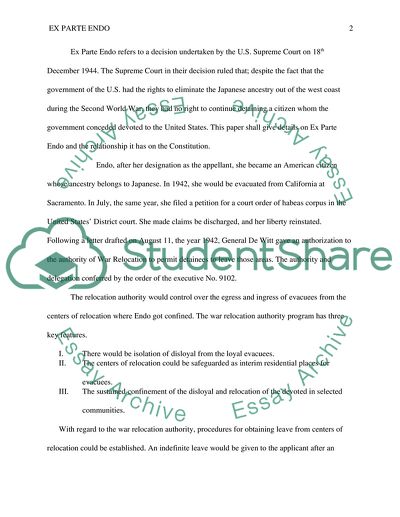Cite this document
(Ex Parte Endo Research Paper Example | Topics and Well Written Essays - 1250 words, n.d.)
Ex Parte Endo Research Paper Example | Topics and Well Written Essays - 1250 words. Retrieved from https://studentshare.org/law/1771621-ex-parte-endo
Ex Parte Endo Research Paper Example | Topics and Well Written Essays - 1250 words. Retrieved from https://studentshare.org/law/1771621-ex-parte-endo
(Ex Parte Endo Research Paper Example | Topics and Well Written Essays - 1250 Words)
Ex Parte Endo Research Paper Example | Topics and Well Written Essays - 1250 Words. https://studentshare.org/law/1771621-ex-parte-endo.
Ex Parte Endo Research Paper Example | Topics and Well Written Essays - 1250 Words. https://studentshare.org/law/1771621-ex-parte-endo.
“Ex Parte Endo Research Paper Example | Topics and Well Written Essays - 1250 Words”, n.d. https://studentshare.org/law/1771621-ex-parte-endo.


